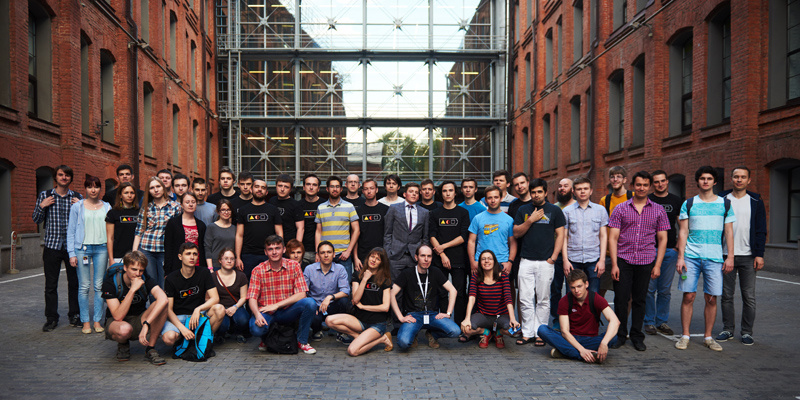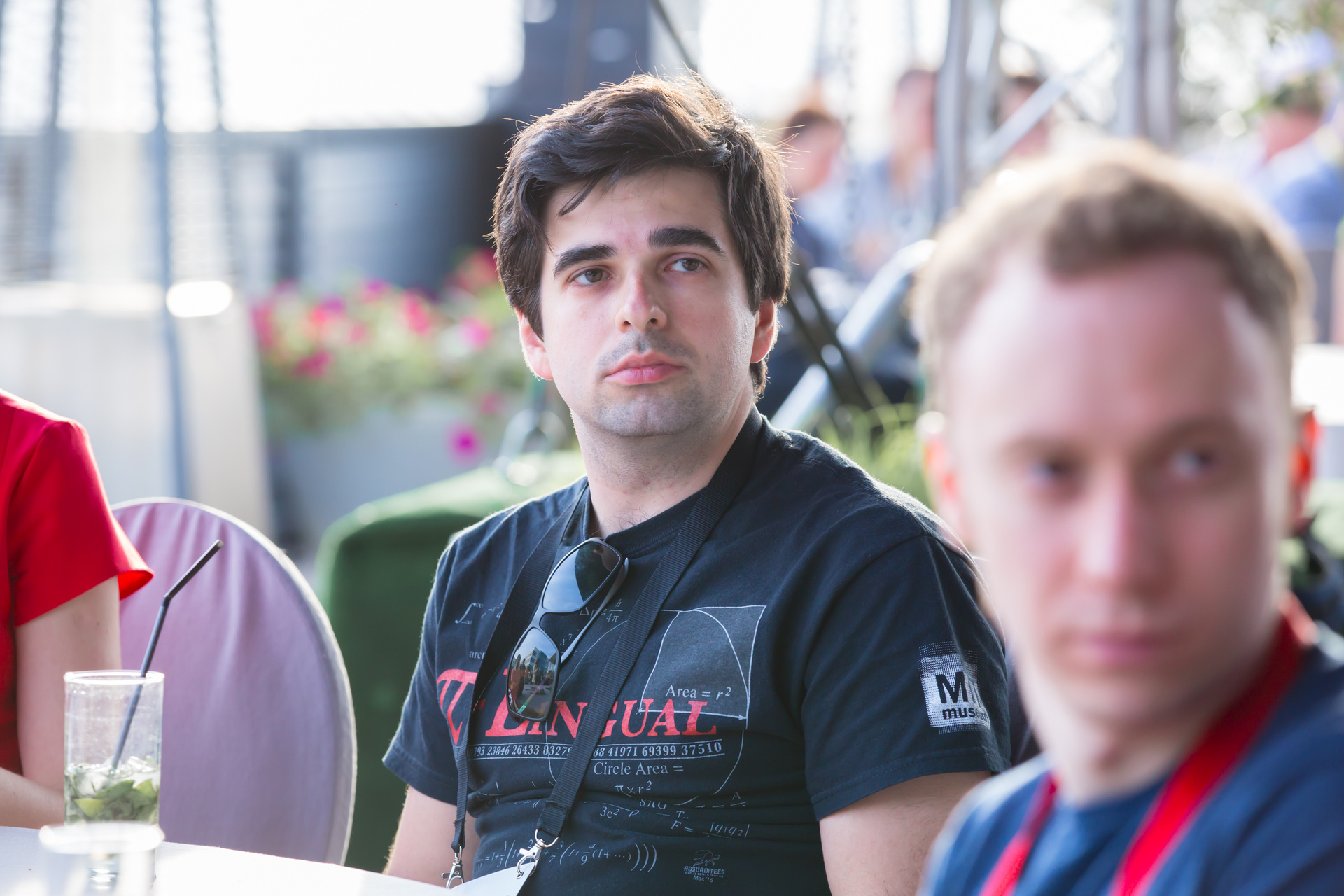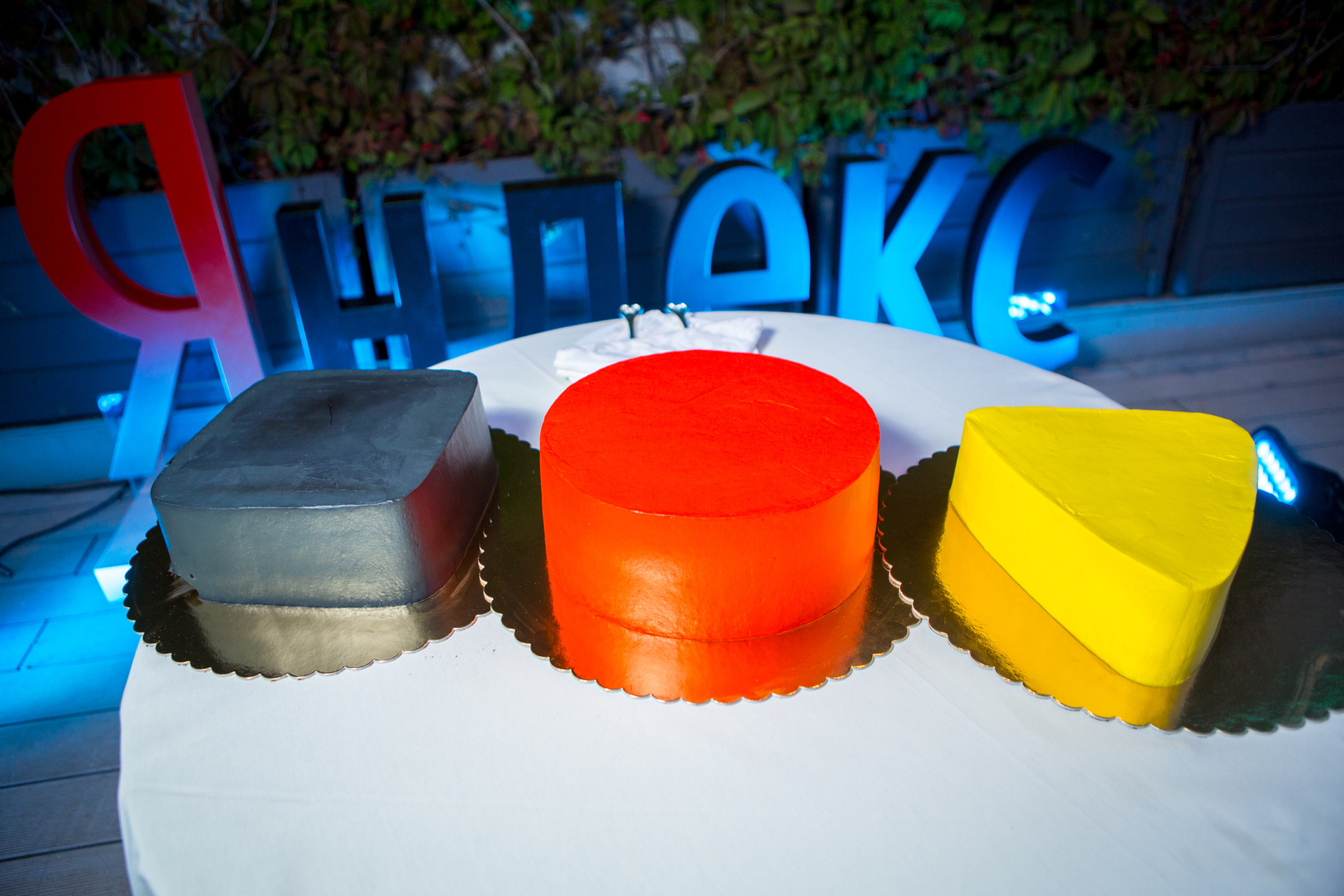10 years of the School of data analysis Yandex
Today marks 10 years of the Yandex Data Analysis School. Nine years ago I entered it, graduated seven years ago and in the same 2010, July 21, I became an employee of Yandex LLC.
Since then, we all have changed a lot: me, Yandex, and ShAD. But there are a few lessons that I learned from the walls of the School, which are still relevant for me and are unlikely to cease to be so.
Initially, I wrote this post in the medium’s personal channel , but then my colleagues convinced me that it makes sense to share it with Habr. The text may have turned out to be too high-flown, but the anniversary is such a thing, that without a bit of high-classness it does not work.
')
I enrolled in the School, having just finished the third year at the Department of Applied Mathematics at the Moscow Institute of Economics. In fact, it was then said that the founders of the School are counting on graduate bachelor students — that is, fourth-year graduates. So I pretty risked.
The commission interviewing the oral exam was impressive: Ilya Borisovich Muchnik, maxim_babenko , Lena Bunina. Ilya Borisovich asked me questions about probability theory, and then about mathematical statistics. And then it turned out that I don’t know the statistics at all, because they are in their fourth year!
I then simply admitted that I didn’t know anything about it and would definitely not answer a single question. Unexpectedly, Ilya Borisovich at the end appreciated my performance in his disciplines extremely highly. It was rather unusual, considering that I absolutely did not know one of these disciplines. At least, such an assessment did not fit the usual criteria familiar to me from school or college.
Then I realized that this is very logical. The commission was immediately able to understand the limitations of my knowledge; It is also important that there was an understandable way to overcome this limitation (go to the fourth course and learn everything). It is much worse not to know the limits of your knowledge than to simply not know something.

When a person realizes the limitations of his knowledge, he understands which issues are incompetent and when he should not make decisions; knows in which direction he should move in order to push the limits of his own awareness; does not take time from people who might be embarrassed by unjustified self-reliance.
Intellectual honesty is the main thing. And Ilya Borisovich was the first person who taught me this.
I remember, I was very proud of myself when I decided to solve five problems out of ten during the first academic hour in C ++ classes. Some of my friends, leaving the audience at the same time with me, were very skeptical about their abilities. Subsequently, I found out that they decided who was also five, who was seven. And Zhenya Remizov, for example, decided then all ten.
A bad habit is to consider yourself the best, the smartest and the coolest. Consider yourself successful. Especially such thoughts harm young people at the age of twenty, when they are not only not able to do anything, but also do not have the opportunity to verify this. Such an illusion, if anything, can lead to degradation.
In high school, it is easy to think of yourself as very intelligent and occasionally (once a year) failing appearances at district olympiads are attributed to a combination of circumstances. Classes at the institute are also not always able to change something in this worldview.

It is all the more surprising to emerge from such a comfortable feeling and meet people who can do the same thing as you, but do not consider themselves to be super professionals. It is even more surprising to meet people who know how much more and at the same time perceive themselves extremely critically. It was a completely new and unfamiliar type of thinking.
It was also curious that many of my classmates at the School were graduates of the Faculty of Mechanics or, for example, candidates of science. Of course, it was pointless to compete with such fine people: they were just better than me, and this continued throughout the whole period of study. Now this has turned out to be a completely new sensation: to study alongside people who literally excel you in all aspects, and at the same time understand that everything is normal and, moreover, cool.
It turned out that a person really learns only when he is with someone who knows more than him. It turned out that a cooler person is not a reason to be jealous or sad, but the only possible situation conducive to development. To err is normal; not to know is normal, because there are simply so many different kinds of knowledge in the world that it is not humanly enough to be aware of everything. It's great that there are a lot of people in the School from whom you can learn - both among students and teachers.
Another great effect from this neighborhood is the understanding that the task can be managed. You are directly watching people who do the same thing, but manage. As a result, there is hope that one day you can handle it.
When young people who already combine studying at a university with work, come to the ShAD to devote another three to four evenings a week (9-12 hours!) To additional classes, and besides, it is not known how much time they spend on homework - this in itself causes some bewilderment. Why should they go to the shad? They already study to the best of prestigious universities, which, of course, give them all the necessary knowledge and skills for a successful future life and professional activity, isn’t it? And some additional knowledge - why should they? This is a waste of energy on some incomprehensible and useless disciplines that practicing programmers never use at all, isn’t it?
Surprisingly, people coming to the ShAD are as far from such thoughts as possible. They are not attracted by any immediate benefit from the acquired knowledge; they are drawn to the Undiscovered.

As soon as we ask ourselves the question in the spirit of “Why do I need this discipline, when will I be perfectly employed without it?”, We deny ourselves the possibility of infinite development, in happiness forever being at the beginning of infinity; on the contrary, we limit ourselves to absurd frames, which are mainly determined by the degree of our current ignorance.
It turns out that the only possible way to keep yourself in a constant intellectual tone is to constantly doubt your knowledge; learn something new, try yourself in new disciplines, get acquainted with those who know better than you. All the time to look for new challenges and new areas in which a person is not yet strong and which can unexpectedly change his life and worldview, and through him and other people, all great people follow this way.
Those who come to the School choose this path, even if not all of us are destined to become great.
At the graduation, Misha Levin said quite unexpected words for me. Now I can not reproduce them exactly, but in fact Misha said the following:
- You know a lot and know a lot. When you come to your new job, spread the good thoughts and ideas that you now have: teach people around you algorithms, good code, machine learning. You know all this and due to this you can make your team better.
It was more likely to expect phrases about, for example, that we still have a lot to learn. But it sounded exactly what sounded. The idea that the guys who just graduated from the School could teach the aksakals, who were already in the company, could be something revolutionary for me.

There are two aspects that need to be addressed.
The first: ShAD graduates really understand some things. The school provides a good education, including in the field of pure programming and algorithms. So yes, a ShAD graduate has a good programming style, knows languages, classical algorithms and therefore can positively influence development processes.
Second, it doesn’t matter who the sensible idea comes from. Much more important is how good it really is. And the task of any acting specialist is to be susceptible to the essence of new ideas, regardless of their source, because otherwise he will fall into the sin of Jastificationism .
All of the above can be summarized as follows. For a successful life after studying a person does not need so much:
All this gives their students a school. And all these thoughts were very succinctly expressed by Misha in his own words: you can; go and do it!

Since then, we all have changed a lot: me, Yandex, and ShAD. But there are a few lessons that I learned from the walls of the School, which are still relevant for me and are unlikely to cease to be so.
Initially, I wrote this post in the medium’s personal channel , but then my colleagues convinced me that it makes sense to share it with Habr. The text may have turned out to be too high-flown, but the anniversary is such a thing, that without a bit of high-classness it does not work.
')
Limited knowledge
I enrolled in the School, having just finished the third year at the Department of Applied Mathematics at the Moscow Institute of Economics. In fact, it was then said that the founders of the School are counting on graduate bachelor students — that is, fourth-year graduates. So I pretty risked.
The commission interviewing the oral exam was impressive: Ilya Borisovich Muchnik, maxim_babenko , Lena Bunina. Ilya Borisovich asked me questions about probability theory, and then about mathematical statistics. And then it turned out that I don’t know the statistics at all, because they are in their fourth year!
I then simply admitted that I didn’t know anything about it and would definitely not answer a single question. Unexpectedly, Ilya Borisovich at the end appreciated my performance in his disciplines extremely highly. It was rather unusual, considering that I absolutely did not know one of these disciplines. At least, such an assessment did not fit the usual criteria familiar to me from school or college.
Then I realized that this is very logical. The commission was immediately able to understand the limitations of my knowledge; It is also important that there was an understandable way to overcome this limitation (go to the fourth course and learn everything). It is much worse not to know the limits of your knowledge than to simply not know something.

Maxim Babenko, Elena Bunina, Arkady Volozh, Ilya Muchnik and Grigory Kondakov
When a person realizes the limitations of his knowledge, he understands which issues are incompetent and when he should not make decisions; knows in which direction he should move in order to push the limits of his own awareness; does not take time from people who might be embarrassed by unjustified self-reliance.
Intellectual honesty is the main thing. And Ilya Borisovich was the first person who taught me this.
People
I remember, I was very proud of myself when I decided to solve five problems out of ten during the first academic hour in C ++ classes. Some of my friends, leaving the audience at the same time with me, were very skeptical about their abilities. Subsequently, I found out that they decided who was also five, who was seven. And Zhenya Remizov, for example, decided then all ten.
A bad habit is to consider yourself the best, the smartest and the coolest. Consider yourself successful. Especially such thoughts harm young people at the age of twenty, when they are not only not able to do anything, but also do not have the opportunity to verify this. Such an illusion, if anything, can lead to degradation.
In high school, it is easy to think of yourself as very intelligent and occasionally (once a year) failing appearances at district olympiads are attributed to a combination of circumstances. Classes at the institute are also not always able to change something in this worldview.

ShAD students in 2016
It is all the more surprising to emerge from such a comfortable feeling and meet people who can do the same thing as you, but do not consider themselves to be super professionals. It is even more surprising to meet people who know how much more and at the same time perceive themselves extremely critically. It was a completely new and unfamiliar type of thinking.
It was also curious that many of my classmates at the School were graduates of the Faculty of Mechanics or, for example, candidates of science. Of course, it was pointless to compete with such fine people: they were just better than me, and this continued throughout the whole period of study. Now this has turned out to be a completely new sensation: to study alongside people who literally excel you in all aspects, and at the same time understand that everything is normal and, moreover, cool.
It turned out that a person really learns only when he is with someone who knows more than him. It turned out that a cooler person is not a reason to be jealous or sad, but the only possible situation conducive to development. To err is normal; not to know is normal, because there are simply so many different kinds of knowledge in the world that it is not humanly enough to be aware of everything. It's great that there are a lot of people in the School from whom you can learn - both among students and teachers.
Another great effect from this neighborhood is the understanding that the task can be managed. You are directly watching people who do the same thing, but manage. As a result, there is hope that one day you can handle it.
Atmosphere
When young people who already combine studying at a university with work, come to the ShAD to devote another three to four evenings a week (9-12 hours!) To additional classes, and besides, it is not known how much time they spend on homework - this in itself causes some bewilderment. Why should they go to the shad? They already study to the best of prestigious universities, which, of course, give them all the necessary knowledge and skills for a successful future life and professional activity, isn’t it? And some additional knowledge - why should they? This is a waste of energy on some incomprehensible and useless disciplines that practicing programmers never use at all, isn’t it?
Surprisingly, people coming to the ShAD are as far from such thoughts as possible. They are not attracted by any immediate benefit from the acquired knowledge; they are drawn to the Undiscovered.

Ilya Iseg Segalovich and Arkady Volozh at the third final ShAD
As soon as we ask ourselves the question in the spirit of “Why do I need this discipline, when will I be perfectly employed without it?”, We deny ourselves the possibility of infinite development, in happiness forever being at the beginning of infinity; on the contrary, we limit ourselves to absurd frames, which are mainly determined by the degree of our current ignorance.
It turns out that the only possible way to keep yourself in a constant intellectual tone is to constantly doubt your knowledge; learn something new, try yourself in new disciplines, get acquainted with those who know better than you. All the time to look for new challenges and new areas in which a person is not yet strong and which can unexpectedly change his life and worldview, and through him and other people, all great people follow this way.
Those who come to the School choose this path, even if not all of us are destined to become great.
Everyone can change the world
At the graduation, Misha Levin said quite unexpected words for me. Now I can not reproduce them exactly, but in fact Misha said the following:
- You know a lot and know a lot. When you come to your new job, spread the good thoughts and ideas that you now have: teach people around you algorithms, good code, machine learning. You know all this and due to this you can make your team better.
It was more likely to expect phrases about, for example, that we still have a lot to learn. But it sounded exactly what sounded. The idea that the guys who just graduated from the School could teach the aksakals, who were already in the company, could be something revolutionary for me.

Mikhail Levin, a graduate of the first thread ShAD
There are two aspects that need to be addressed.
The first: ShAD graduates really understand some things. The school provides a good education, including in the field of pure programming and algorithms. So yes, a ShAD graduate has a good programming style, knows languages, classical algorithms and therefore can positively influence development processes.
Second, it doesn’t matter who the sensible idea comes from. Much more important is how good it really is. And the task of any acting specialist is to be susceptible to the essence of new ideas, regardless of their source, because otherwise he will fall into the sin of Jastificationism .
All of the above can be summarized as follows. For a successful life after studying a person does not need so much:
- actually modern knowledge
- the ability to acquire knowledge independently, develop them and doubt them,
- confidence in order to put their knowledge and skills into practice to change the surrounding reality and yourself.
All this gives their students a school. And all these thoughts were very succinctly expressed by Misha in his own words: you can; go and do it!

Source: https://habr.com/ru/post/334066/
All Articles